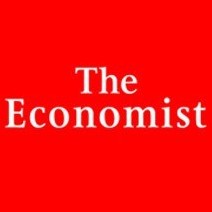未来震撼
以色列畅销历史学家展望人类未来
尤瓦尔·诺亚·赫拉利(Yuval Noah Harari)的上一本书《人类简史》(Sapiens)出版于2011年,书中回顾了人类一路走来的历程。这本书穿越7万年的人类历史,向读者说明我们这个物种毫无特别之处:没有神授的权力,没有独一无二的人性火花。值得称道的只有人类的攀升背后那只看不到的进化之手。该书在结尾给人留下的思考是,“智人”时代可能即将终结。在新书《人神合一》(Homo Deus)中,这位以色列历史学家将目光投向未来。
赫拉利在新书中以振奋人心的笔调宣称:人类的夙敌——瘟疫、饥荒和战争——如今已经可以控制。“在人类历史上第一次出现了这样的情况,”作者写道,“死于暴饮暴食的人多过死于饥饿的人;寿终正寝的人多过死于传染疾病的人;自杀身亡的人多过死于战争、恐怖主义和犯罪的人之和。”但新的问题接踵而至,第三个千禧年的挑战将是如何获得永生、幸福和神性,后者的意思在于超越自然法则,增强人类的身体和认知能力。
这听起来可能是好消息,但作者却给出了一个反乌托邦的景象。人类将更多地把工作和决策权交给机器和算法。被机器和算法的发展抛在一边的“无用的大众”将通过药物和虚拟现实追求幸福的幻象。只有超富人群才能真正收获新技术发展带来的回报:他们将通过智能设计来掌控进化的进程,例如编辑基因组以及最终实现人机合一。赫拉利设想出一个“智人”精英阶级,它会演进得让人无法辨认,成为“人神共体”。在这样一个美丽新世界里,其他人将会感觉如同“行走于华尔街上的穴居猎人”。
赫拉利的预言很黯淡,但也并不新颖。更为有趣的是他论述观点的方式,他将关于技术的思索置于自由民主演变的背景之下。赫拉利说在人类历史的大部分时间里,人类都信仰诸神。这种信仰赋予人类世界一种宇宙秩序。然而后来,至少是在世界部分地区,科学发展开始给予人类力量,同时将宗教挤到边缘位置,剥夺了人类曾经笃信其中的意义。赫拉利写道,这种存在性的空洞被一种新的信仰所填补,即“圣化人类生命、幸福和力量”的人文主义。人文主义与科学之间的契约定义了现代社会:后者帮助人类实现前者定下的目标。
然而生命科学正在削弱人文主义的基础:自由意志和个人主义。赫拉利写道,在他看来,科学研究证明了“自由个人只不过是由一组生化算法炮制出来的一种假象”。赫拉利认为,当人类逐渐明白自由意志是一种假象,而外部算法可以预测人类行为的时候,自由民主将会垮塌。取而代之的会是什么呢?也许是像“数据主义”这样的科技宗教,从数据处理的角度看待万物,认为宇宙的最高价值就是信息流。在这个背景之下,“智人”只是个很不起眼的算法,终究要被淘汰——或是升级。
尽管这部雄心大作有不少可圈可点之处,但终究只是哗众取宠,书中充满投机取巧的花招和并不令人满意的空洞概括。赫拉利喜欢堆砌科技术语来提升作品身价——例如生物科技、纳米技术和人工智能等名词的大量使用——但却很少以任何严肃的方式深入探讨这些话题。相反,他像做TED演讲一样洋洋洒洒,长篇大论。论点中的漏洞像高速旋转的车轮辐条一样变得模糊不清,制造出一种论据充分的假象,除此之外再无他物。当读者放下书本思考的时候,“人神合一”的概念突然不那么令人信服了,那种超级自信的光环很诱人,却也很误导人。
Mankind tomorrow
Future Shock
A bestselling Israeli historian looks at where mankind is heading
“SAPIENS”, Yuval Noah Harari’s previous book which came out in 2011, looked to the past. Zipping through 70,000 years of human history, it showed that there is nothing special about our species: no divine right, no unique human spark. Only the blind hand of evolution lies behind the ascent of man. That work ended with the thought that the story of Homo sapiens may be coming to an end. In his new book, “Homo Deus”, the Israeli historian heads off into the future.
In one thrilling sweep, Mr Harari proclaims that the old enemies of mankind— plague, famine and war—are now manageable. “For the first time in history,” he writes, “more people die today from eating too much than from eating too little; more people die from old age than from infectious diseases; and more people commit suicide than are killed by soldiers, terrorists and criminals combined.” Instead, the challenges of the third millennium will be how to achieve immortality, happiness and divinity, the latter in the sense of enhancing people’s physical and cognitive abilities beyond the biological norm.
This might sound like good news, but the author has a dystopian vision. People, increasingly, will cede jobs and decisions to machines and algorithms. The “useless masses” cast aside by this development will pursue the mirage of happiness with drugs and virtual reality. Only the super-rich will reap the true rewards of the new technologies, commandeering evolution with intelligent design, editing their genomes and eventually merging with machines. Mr Harari envisages an elite caste ofHomo sapiens evolving into something unrecognisable: Homo deus. In this brave new world, the rest of mankind will be left feeling like “a Neanderthal hunter in Wall Street”. Mr Harari’s prophecy is bleak, but it is far from new. More interesting is the way he roots his speculation about technology in the context of how liberal democracy has evolved. For most of human history, Mr Harari says, humans believed in gods. This lent their world a cosmic order. But then, at least in some parts of the world, science began simultaneously to give mankind power and to strip it of meaning by relegating religion to the sidelines. This existential hole was filled by a new religion, humanism, that “sanctifies the life, happiness and power of Homo sapiens”, he writes. The covenant between humanism and science has defined modern society: the latter helps people achieve the goals set by the former. But the life sciences are now undermining free will and individualism, which are the foundations of humanism. Mr Harari describes scientific research that, in his eyes, proves that the “free individual is just a fictional tale concocted by an assembly of biochemical algorithms”. As it dawns on mankind that free will is an illusion and external algorithms can predict people’s behaviour, Mr Harari believes liberal democracy will collapse. What will replace it? Perhaps a techno-religion such as “Dataism” that treats everything in terms of data processing and whose supreme value is the flow of information. In this context, Homo sapiens is a rather unimpressive algorithm, destined for obsolescence—or an upgrade. Although there is plenty to admire in the ambitious scope of this book, ultimately it is a glib work, full of corner-cutting sleights of hand and unsatisfactory generalisations. Mr Harari has a tendency towards scientific name-dropping—words like biotech, nanotechnology and artificial intelligence abound—but he rarely engages with these topics in any serious way. Instead, he races along in a slick flow of TED-talk prose. Holes in his arguments blur like the spokes of a spinning wheel, giving an illusion of solidity but no more. When the reader stops to think, “Homo Deus” is suddenly less convincing, its air of super-confidence seductive but misleading. |
您已免费阅读《未来震撼》
即刻订阅《经济学人·全球商业评论》APP体验更多双语文章
《人神合一》(Homo Deus)
尤瓦尔·诺亚·赫拉利(Yuval Noah Harari)著
Harvill Secker出版社














